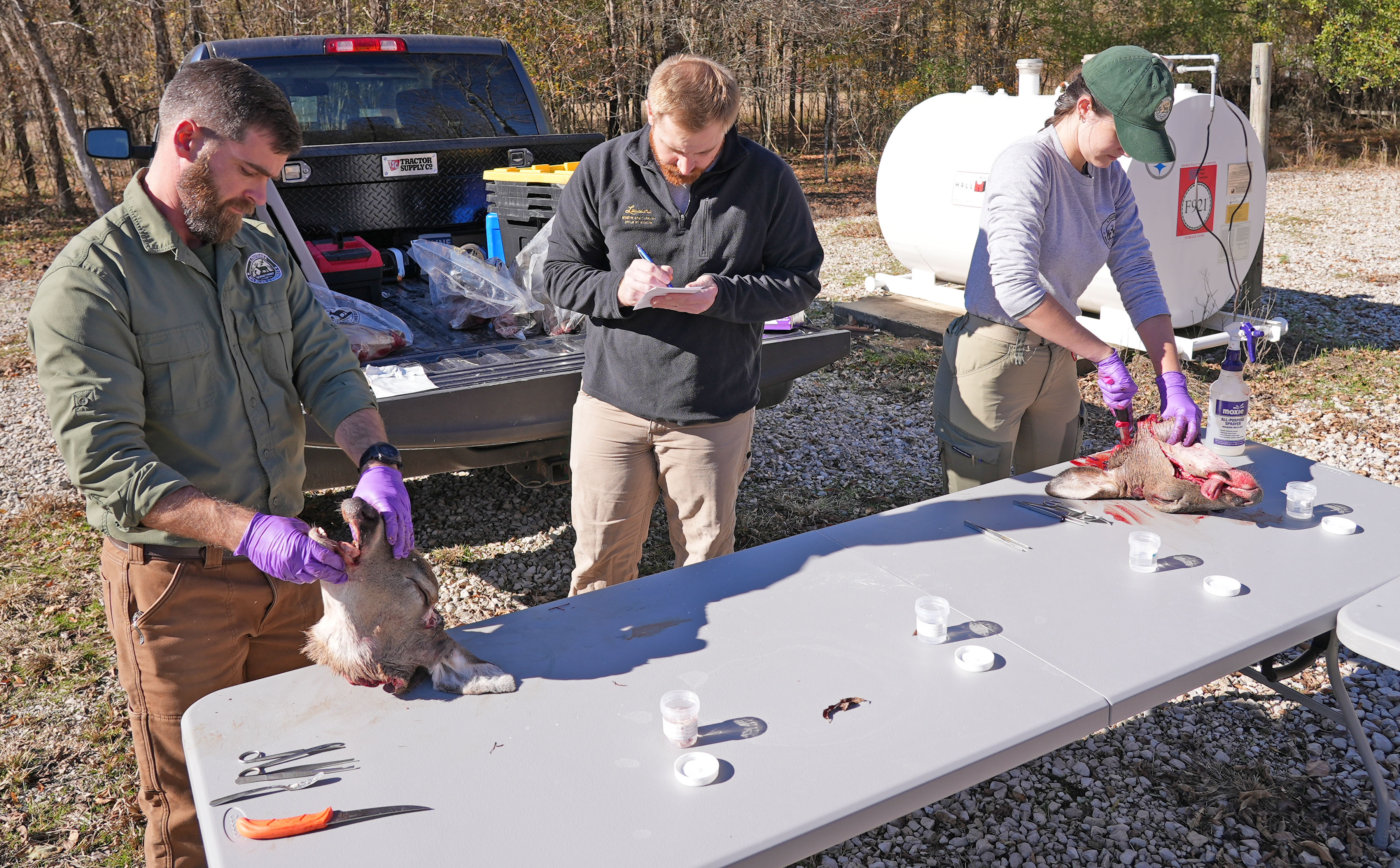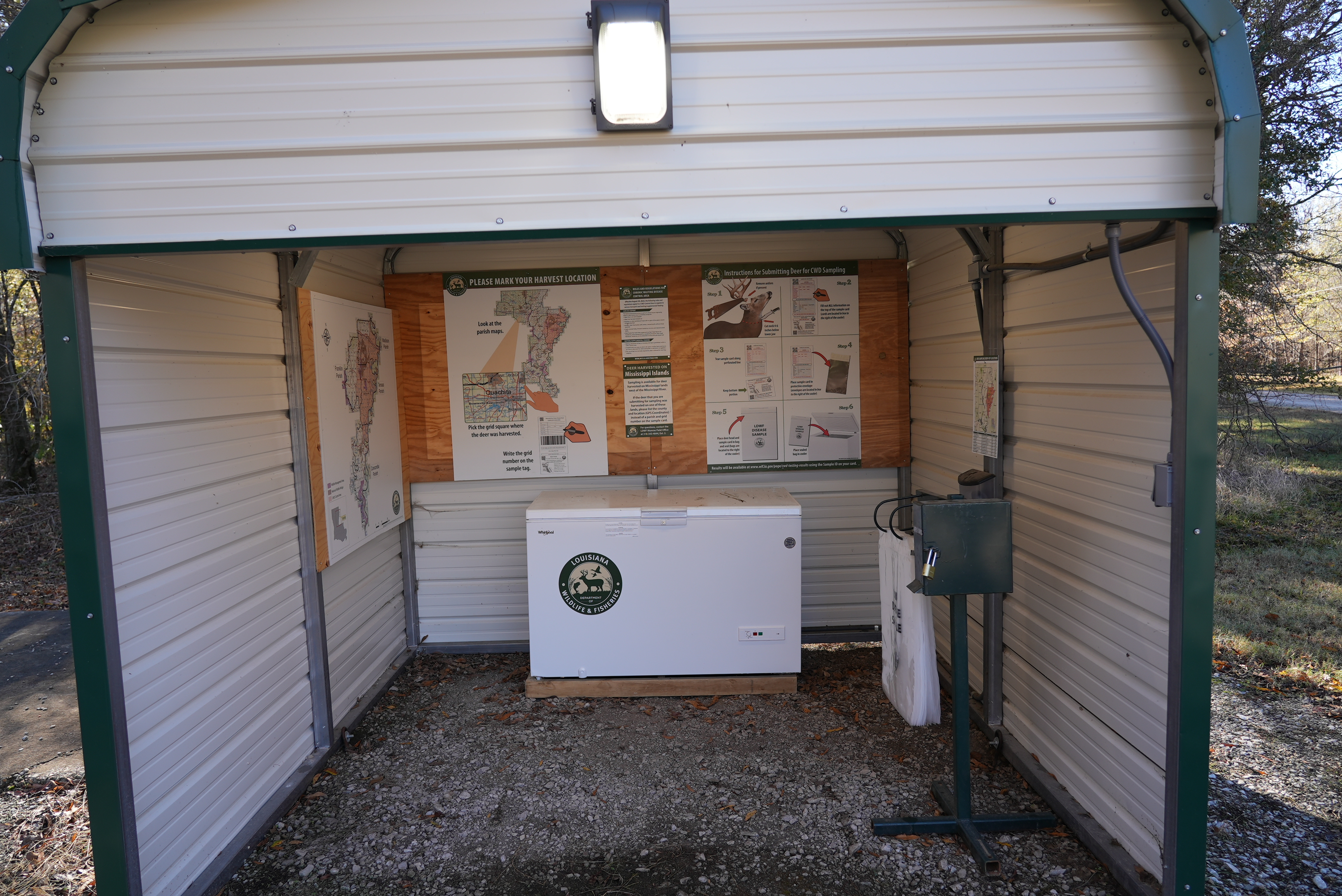Deer hunters in northeast Louisiana are urged to place the heads of any deer they harvest this season in one of 13 free Chronic Wasting Disease (CWD) Testing Collection points located throughout the region to test for CWD.
Collection sites are located in Catahoula, Concordia, Franklin, Madison, Morehouse, Tensas and Union parishes.
“CWD is 100 percent fatal to deer and there is currently no treatment,” explained Louisiana Department of Wildlife and Fisheries (LDWF) State Deer Program Manager Johnathan Bordelon. “CWD is found in 32 states, and we have had confirmed cases of CWD in Tensas Parish. Deer show no outward signs of the disease until it is very advanced, so testing is required to identify infected animals. We are asking hunters to bring the head of any deer they harvest in the four-parish control area so we can test the animals and help slow the spread of the disease.”
Bordelon said the process is quick and free to hunters. They simply fill out a collection card indicating where and when the deer was harvested, place the card in an envelope and then place the envelope and the deer head in a plastic bag and then place the bag in a cooler. All of the supplies needed are provided at the collection site. For a complete list of sites as well as instructions for submitting a deer head for testing and reviewing results, visit the LDWF website at https://www.wlf.louisiana.gov/page/cwd.
Biologists collect the deer heads from the drop-off locations throughout deer season. They then remove the two retropharyngeal lymph nodes from the deer’s head as well as a sample of the brain stem. Bordelon explained CWD is a neurodegenerative disease, and the retropharyngeal lymph nodes are among the first places the disease can be detected. If CWD is found in the lymph nodes, brain stem testing can help determine how far the disease had progressed in the animal.
If a deer does test positive for CWD, the hunter who provided the sample is notified. The testing process typically takes two weeks. According to the Centers for Disease Control and Prevention, there is no evidence that CWD can infect humans. However, the CDC recommends caution in handling venison in the infected region and CWD-positive deer should not be consumed by people.


